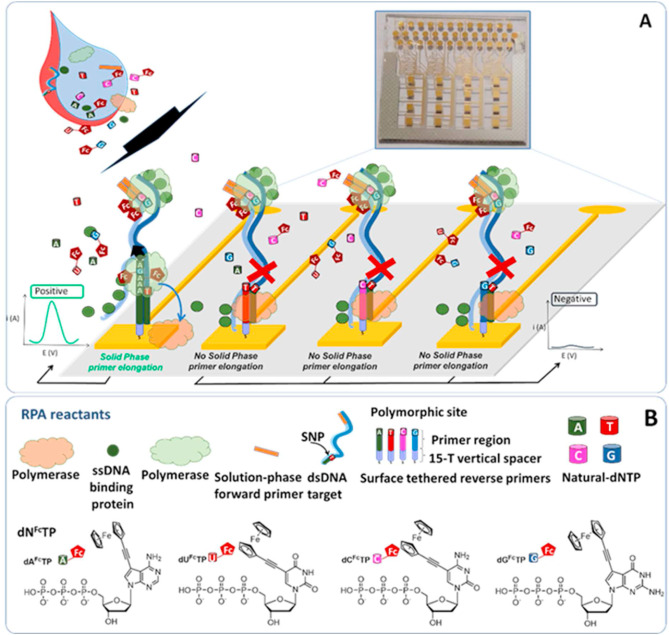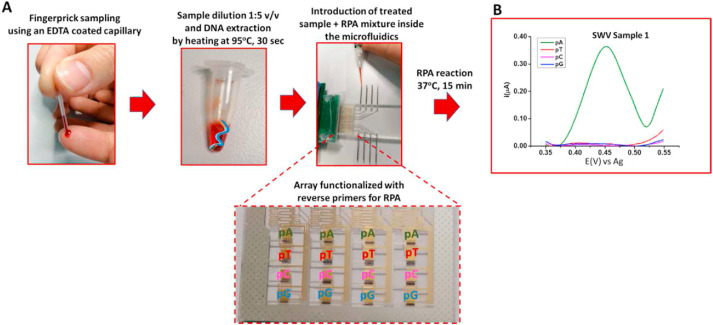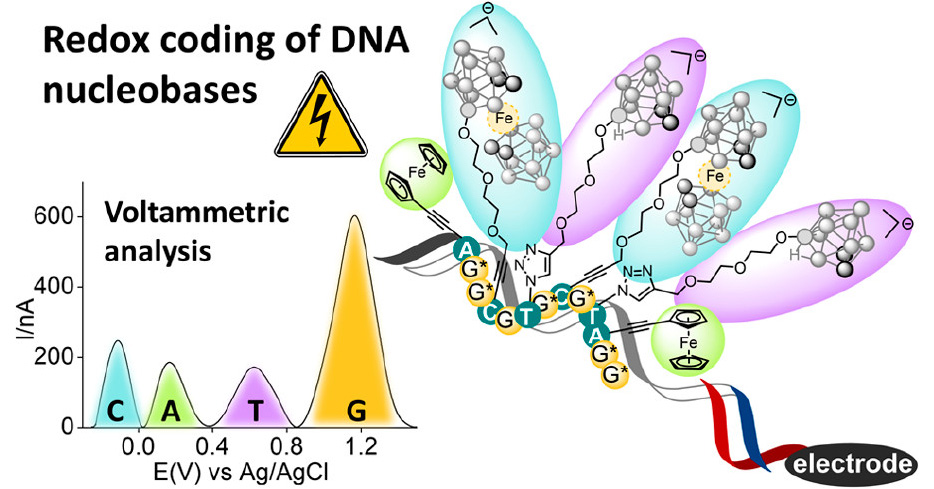
Hypertrophic cardiomyopathy (HCM) is a disease, which causes abnormal heart rhythms due to atypically thick heart muscle and is the principal cause of sudden cardiac death in young athletes. It’s caused by a single nucleotide polymorphism (SNP), a substitution of one single nucleotide at a specific genome position. The team led by Ciara O'Sullivan from Universitat Rovira i Virgili and ICREA Spain and Michal Hocek from IOCB Prague developed a generic platform for quick electrochemical detection of SNP analyzing DNA directly from fingerprick blood samples.
The method is based on solid-phase recombinase polymerase amplification, in which four short thiolated reverse primers containing a variable nucleotide (A, G, T, C) are immobilized on the surface of gold electrodes and elongated with a mixture of nucleotides containing ferrocene as redox label. During the elongation step, the polymerase incorporates the ferrocene-labelled nucleotides only at one electrode, thus identifying the SNP by electrochemical detection specific for the hypertrophic cardiomyopathy.
This analytical method can find a wide range of applications requiring a reliable and sensitive identification of SNP.

Read the paper:
- Ortiz, M.; Jauset-Rubio, M.; Kodr, D.; Simonova, A.; Hocek, M.; O'Sullivan, K. C. Solid-phase recombinase polymerase amplification using ferrocene-labelled dNTPs for electrochemical detection of single nucleotide polymorphisms, Biosens. Bioelectron. 2021, 113825. https://doi.org/10.1016/j.bios.2021.113825






